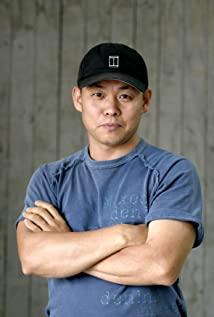Someone suggested that in the first half of the cutscene where the father sent his daughter to school, the father kept telling his daughter foreign stories on the way, especially religious stories; in the second half, from the father’s perspective, it was discovered that the daughter’s desire for the West was to facilitate her assistance. The reason for communication is hard to explain. Some people mentioned that the father found his daughter’s diary, and the dark field confessed that the father learned of his daughter’s compensation; but it is worth noting that the father only found his daughter after the murder (also the last attack on the daughter's customer for compensation) Diary, and Nasi is nearing the end of the movie; so the father learned of his daughter's emotions and behaviors after the aided dating. At the beginning, he should have nothing to do with the diary. He only learned the truth at the end. There is a psychological shift among the father's hatred of middle-aged men who specially assisted these female students. Did these middle-aged men do what he didn't dare to do? It doesn't seem to be that complicated. First of all, not all of the daughter's clients for aided dating are middle-aged men, and the father's first target for interception is not middle-aged. I think we can make some guesses based on the father's family background (wife bereavement, and his daughter's life together). From the meticulous care of the father to his daughter in the details of life, the father naturally has an element of love for his daughter, but from the details of the second half of the father taking his daughter to the suburbs to sweep the grave of his deceased wife, the father learned about the emotions and behavior of the daughter after the aid date. It stems more from the guilt of my deceased wife: I didn't take care of my daughter with due diligence; and the scene ended-the father got in a colleague's car and closed the case, leaving his daughter alone to study and grow up, which can also be regarded as an explanation to the deceased wife. The film did not explain the cause of his wife’s death, but the calm after the father remembered the truth from his daughter’s day, and the story of Mother Teresa told by the father in the mountain village, the father and daughter probably reached an understanding of sympathy for the same illness. The continuous appearance of washing scenes in the movie, coupled with the interspersed biblical stories, naturally reminds people of the washing of sin. But in "Looking for the Sea", it seems that the main thing to be washed is not prostitution or murder, but the indelible trauma. It is worth noting that the daughter had a dream at the end of the scene, in which her daughter was killed by her father and buried in the mud. Interestingly, in response to the first half of the scene where the father used the CD player to play music to awaken his daughter, in the dream, the father played music to the daughter buried in the soil, which seemed to be a way out of the previous behavior (cannot leave the sea of suffering). (Killing) is transformed into rebirth, playing music to the daughter in the soil, isn't it just to let the daughter be reborn in death (to wake up the daughter)? Like its Chinese title, "Yu Hai Ci Hang" has a deep religious connotation.
View more about Samaritan Girl reviews









